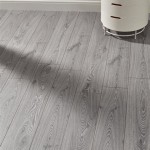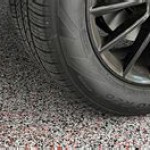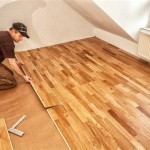Essential Aspects of Home Rubber Flooring Installation
Installing rubber flooring in your home can provide many benefits, including increased durability, comfort, and sound absorption. To ensure a successful installation, it is important to consider several essential aspects.
Preparation of the Subfloor
A level and smooth subfloor is crucial for proper rubber flooring installation. Concrete subfloors should be free of any unevenness or debris. Plywood subfloors must be at least 1/2-inch thick and fastened securely to the joists. If necessary, use self-leveling compounds or underlayment to correct any imperfections.
Acclimation of the Rubber Tiles
Before installation, it is essential to acclimate the rubber tiles to the room's temperature and humidity. This process helps prevent tiles from expanding or contracting after installation. Unpack the tiles and allow them to rest in the room for at least 24 hours before beginning the installation.
Adhesive Selection
Choosing the appropriate adhesive is vital for ensuring the durability of the rubber flooring. Use an adhesive specifically designed for rubber flooring and follow the manufacturer's instructions carefully. Some rubber tiles require pressure-sensitive adhesive, while others may work with adhesive spread with a trowel.
Installation Process
Begin the installation by laying out the tiles dry to visualize the layout and make any necessary adjustments. Once satisfied, apply adhesive to the subfloor and start placing the tiles. Use a rubber mallet or roller to press each tile firmly into place. Ensure the tiles are butted tightly together and aligned correctly.
Grout and Sealing
For certain types of rubber flooring, grouting may be necessary to fill the joints between the tiles. Use a grout specifically designed for rubber flooring and follow the manufacturer's instructions. Once the grout has dried, apply a sealant to protect the flooring from moisture and wear. Avoid wax-based sealants, as they can damage the rubber.
Maintenance and Care
Proper maintenance is essential to extend the life of your rubber flooring. Regularly sweep or vacuum the floor to remove dirt and debris. Mop the floor as needed with a mild detergent cleaner specifically designed for rubber flooring. Avoid using harsh chemicals or abrasive cleaning methods.
By following these essential aspects, you can ensure a successful and long-lasting rubber flooring installation in your home.

Rubber Flooring Installation On Concrete Other Surfaces

How To Install Rubber Flooring Tiles For Your Gym

Affordable And Durable 6mm Rubber Gym Flooring Tiles For High Energy Workouts

What Are The 3 Best Rubber Mat S For Home Gyms

Home Gym Flooring Commercial

Rubber Flooring Installation On Concrete Other Surfaces

The Best Home Gym Flooring Diy Garage Renovation

Rubber Residential And Commercial Gym Flooring Bauer Sport Floors Inc

Flooring For An In Home Exercise Room Rubber Floors

This Flooring Transformed My Gym
Related Posts








